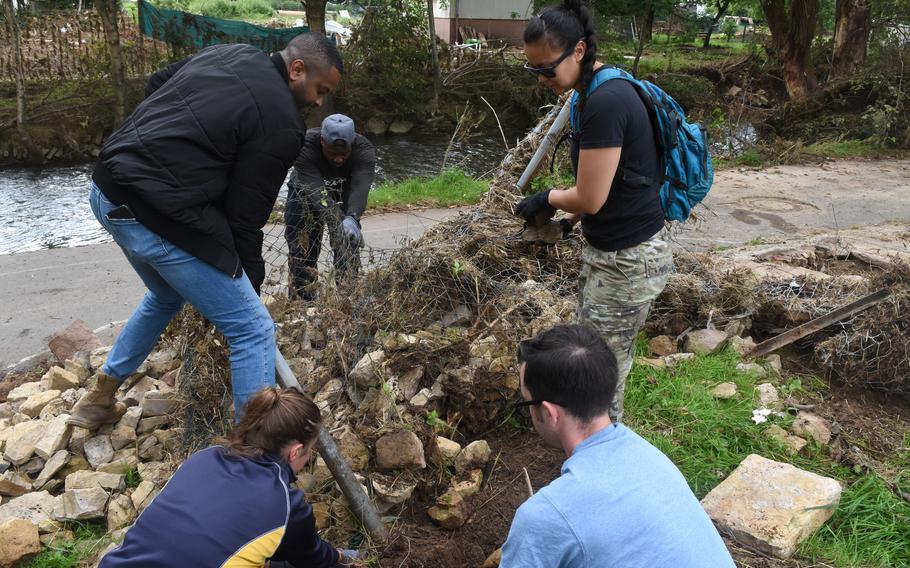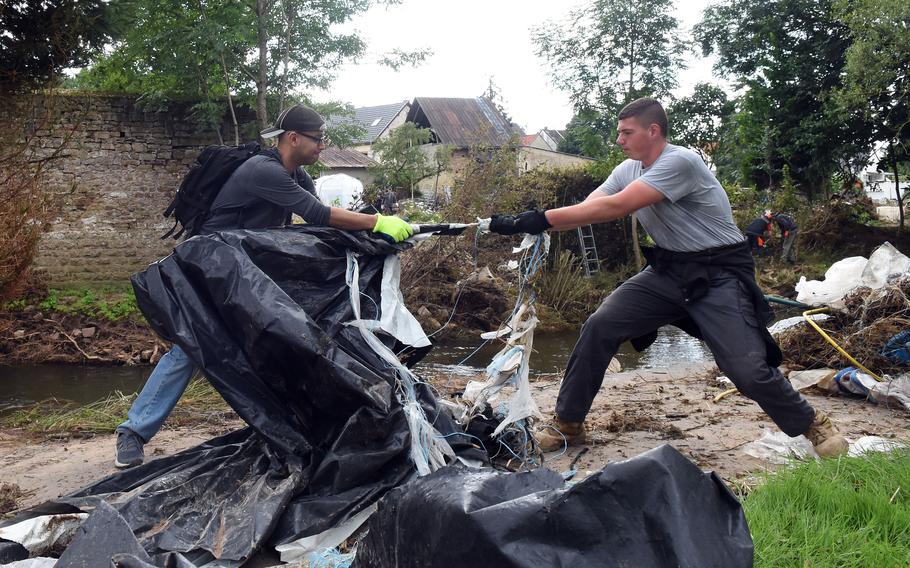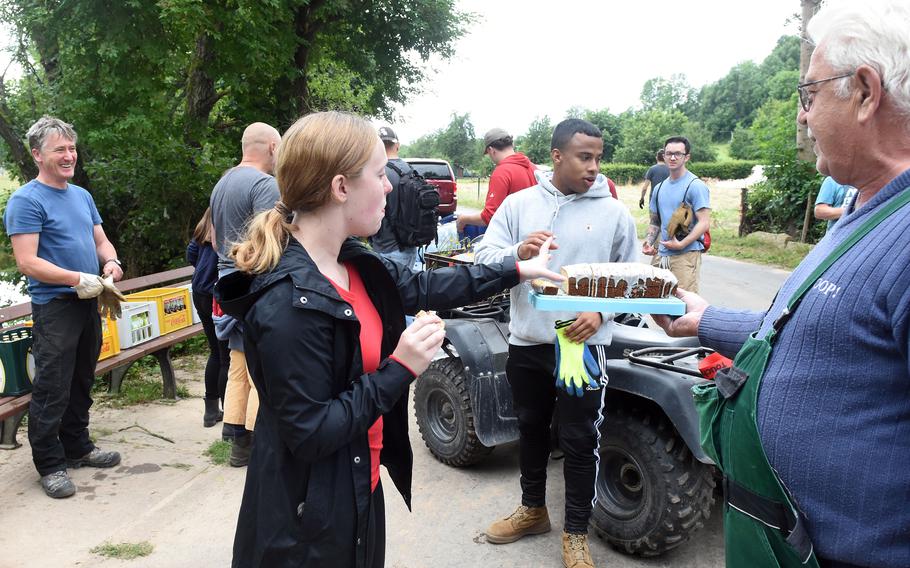
Airmen from Spangdahlem Air Base, Germany, work to untangle a metal fence from a pile of rocks that washed up on the banks of the Nims River in Rittensdorf, Germany, during the severe flooding in July 2021. (Jennifer H. Svan/Stars and Stripes)
LAACH, Germany — Half-destroyed bridges. Train tracks that end in the middle of nowhere. Abandoned ruins in one of the world's richest countries.
The scars of last year's deadly floods are still starkly visible in the Ahr valley, a hilly region south of Cologne that suffered more than half the deaths recorded in the disaster across Germany and neighboring Belgium and the Netherlands.
Official figures show at least 134 people died in the region in the night from July 14-15, 2021, when heavy rains turned swollen streams into raging torrents that burst their banks and swept away cars, roads and houses. The total death toll across the three countries was at least 239.
Scientists say such extreme weather events are becoming more likely because of climate change. That's because warmer air can store more water, leading to bigger cloudbursts when it's released.

Senior Airman Calixto Rodriguez, left, and Airman Kyle Koury try to break apart a piece of debris while cleaning up the banks of the Nims River in Rittensdorf, Germany, on Saturday, July 31, 2021. (Jennifer H. Svan/Stars and Stripes)
German authorities agreed to provide 30 billion euros ($30 billion) to help rebuild regions hit by the floods, making it one of the costliest natural disasters in the country's history.
For many in the Ahr valley, the pain runs deeper than the loss of a home or business, however. Friends, family members and colleagues are still mourned.
The oldest victim was 97; the youngest was 4. Most of those killed were over 60, but three children, 12 residents of an assisted living facility and a volunteer firefighter were also among the dead. More than 750 people were injured. At least two suicides have been recorded in connection with the floods.
Prosecutors are still investigating whether officials made mistakes in their response to the disaster. Survivors said they received little notice from authorities that waters would rise so dramatically, even though meteorologists had warned of possible flooding for days.

Residents of Rittensdorf, Germany, thank airmen with refreshments for helping them clean up their village in the aftermath of severe flooding in July 2021. (Jennifer H. Svan/Stars and Stripes)
Experts say the floods of 2021 highlight how no region of the world is safe from the impacts of global warming.
The head of Germany's disaster protection agency warned that parts of the country may need to be declared no-go zones for housing in future.
"Some areas shouldn't be resettled due to climate change and the acute risk of natural disasters and catastrophic floods," Ralph Tiesler said in an interview with the Funke media group published Wednesday. "This is a question that needs to be raised along the coastline too."
Such warnings have some in the Ahr valley wondering whether disasters that were once thought to strike only every century could happen again soon. And whether it's better to rebuild that broken bridge and clean those mud-caked belongings — or simply move away.
German leaders including Chancellor Olaf Scholz and President Frank-Walter Steinmeier are scheduled to attend a memorial event in the region's main town, Ahrweiler, on Thursday.
Frank Jordans in Berlin contributed to this report.